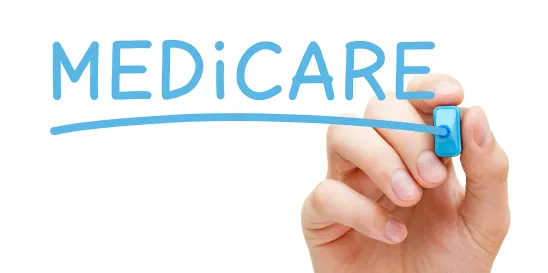The CY 24 Medicare Physician Fee Schedule (“PFS”) final rule was published in the November 16, 2023 Federal Register. The rule addresses updated payment for physician and other practitioner services, and also sets out new rulemaking with respect to certain other suppliers and items, such as ambulances, laboratories and other diagnostic facilities, and prescription drugs. Following is a summary of certain key regulatory changes outlined in the rule. The PFS final rule is available here.
- New E/M Code for Visit Complexity. CMS is implementing a new code, G2211, as an add-on to office or outpatient E/M visits to reflect complex visits where the billing provider is the focal point of care for a patient’s complex or serious condition. As a result of this add-on code, other codes have been revalued to maintain budget neutrality, but CMS has indicated that the overall effect of the revaluation on existing codes has been less than it anticipated in the proposed rule.
- Split/Shared Visits. For CY 2024, CMS is implementing that the choice of which provider can bill a split/shared visit can either be made based on which provider spent the majority of the time with the patient or based on whether the provider participated substantively in the medical decision-making as defined in CPT guidelines. Previously, CMS had stated that split/shared visits would be based on time exclusively starting on January 1, 2024.
- Telehealth Services under the Physician Fee Schedule. For CY 2024, CMS is adding health and wellness codes 0591T, 0592T, and 0593T (health and well-being coach, individual session, group session) on a temporary basis as telehealth services. While CMS considered several comments requesting the permanent addition of these codes to the Medicare Telehealth Services List, CMS did not find sufficient evidence at this time. Additionally, CMS found that the evidence presented by the commentors was anecdotal, and instead, requested that commentors submit qualified, peer-reviewed data in future submissions. Lastly, for CY 2024, CMS is restoring the binary multicategory classification for telehealth services. Instead of categories one, two, and three, CMS is moving to a two-category, permanent versus provisional system.
- Telehealth Services Furnished in Teaching Settings. In CY 2021, CMS allowed teaching physicians to have a virtual presence in all teaching settings for clinical purposes, but only when the service is provided virtually. This allows teaching physicians and residents to provide telehealth services when (1) the interaction is audio-visual, not only audio, and (2) does not require the teaching physician and resident be co-located when the patient is located in an area that is not a Metropolitan Statistical Area (“MSA”). The non-MSA requirement allows CMS to continue prioritizing access of care for individuals located in a rural or remote areas. For CY 2024, CMS will continue allowing the above as described.
- Medicare Part B Payment for Preventive Vaccine Administration Services. CMS increased the reimbursement rate for HCPCS M0201, which allows home administration of the COVID–19 vaccine, so long as it is not administered in a hospital outpatient department, rural health clinic, or federally qualified health center, and added coverage of pneumococcal, influenza, and hepatitis B vaccines (the “Part B preventatives”). The reimbursement rate for CY 2023 was $35.50, while the CY 2024 rate will be $36.85. Please note that these are baseline figures subject to annual updates and geographical adjustments.
To qualify for M0201, the patient must be hard-to-reach due to either disability, or barriers to care, including clinical, socioeconomic, or geographical barriers. Note, however, that with the addition of Part B preventives, multiple vaccines may be administered in a single visit. This changes the current requirement that the sole purpose of the visit was to administer the COVID–19 vaccine. However, only one M0201 code may be billed for a visit. The in-home payment for Part B preventives will be effective January 1, 2024.
- Telehealth Proposals for Diabetes Self-Management Training (“DSMT”) Services. During the COVID-19 Public Health Emergency (“PHE”), CMS allowed certain specialty providers, including those who provide DSMT services, to telecommunicate with patients. Providers were allowed to bill for DSMT telecommunications, as were institutions billing for institutional staff. These institutions included hospital outpatient departments, skilled nursing facilities, and home health agencies. CMS used waiver authority to expand the definition of distant site practitioners to include DSMT providers, and further used its waiver authority to expand the Medicare originating site requirements, as these definitions apply to telehealth. CMS also used its waiver authority to implement Hospitals Without Walls (“HWW”), which expanded hospitals’ ability to bill for telecommunication and telehealth services rendered to patients in their homes. But hospital outpatient departments were to bill for services using modifier 95, indicating telehealth.
For CY 2024, CMS is continuing the current DSMT system defined above. The notable amendment is changing the HWW requirement. Instead, hospitals and all other institutional providers, with an exception for some critical access hospitals, must include modifier 95 on the claim.
- Dental and Oral Health Services. CMS allows for payment of certain dental services that are inextricably linked to covered Medicare Part A or B procedures. In CY 2023, CMS finalized this concept, with inextricably linked defined as dental procedures proven to mitigate risks associated with covered Part A or B procedures. In CY 2024, CMS will expand the definition of inextricably linked procedures to include (1) chemotherapy, (2) CAR T-cell therapy, and (3) high-dose bone modifying therapy. CMS explained its rationale as preventing serious and imminent risks caused by dental infections, such as delaying or preventing the primary medical service. Instead, and dental or oral examination performed as part of the comprehensive work-up may mitigate risks, infections, and delays.
- Coverage for Certain Therapy Services Rendered Through Telehealth. For CY 2024, CMS will allow outpatient hospitals and other providers of physical therapy, occupational therapy, speech-language pathology, Diabetes Self-Management Training (DSMT) and Medical Nutrition Therapy (MNT) services that remain on the Medicare Telehealth Services List for CY 2024 to bill for these services when furnished remotely in the same way they have been during the PHE and through the end of CY 2023.
- Clarification on DSMT Services Furnished by Registered Dietitians and Nutrition Professionals. CMS finalized clarifications that a Registered Dietician (RD) or nutrition professional is required to personally perform DSMT services they bill for, but that, when billing as or on behalf of a DSMT entity, they can bill for the DSMT entity regardless of which professional furnishes the actual services.
- Expanded Diabetes Screening. CMS added Hemoglobin A1C testing to as a covered diabetes screening test. CMS also finalized rules for expanding and simplifying frequency limitations for diabetes screening coverage and removed specific clinical test criteria from the definition of “diabetes.”
- Medicare Diabetes Prevention Program (MDPP) Expanded Model. CMS finalized proposed amendments to the MDPP Expanded Model, including extending flexibilities for MDPP services under the PHE through December 31, 2027.
- Electronic Prescribing for Controlled Substances (EPCS) Program. CMS finalized regulatory provisions relating to prescriber notices of non-compliance, the same entity exception, prescribing during a recognized emergency, and other provisions under the EPCS Program.
- Provisions from the Inflation Reduction Act Relating to Drugs and Biologicals Payable Under Medicare Part B. CMS codified provisions of the Inflation Reduction Act (IRA) affecting limits on beneficiary out-of-pocket costs for certain drugs payable under Part B.
- Ambulance Fee Schedule – Ambulance Extenders Provisions. CMS extended the ambulance fee schedule amounts for ground ambulance services, as well as the Super Rural Bonus, through December 31, 2024.
- Supervision of Outpatient Therapy Services in Private Practices. CMS added language to the outpatient occupational therapy and physical therapy service conditions to permit occupational therapy assistants and physical therapy assistants to furnish remote therapeutic monitoring (RTM) under general supervision of an occupational therapist in private practice or a physical therapist in private practice, and require direct supervision for RTM services performed by unenrolled occupational therapists and physical therapists.
- KX Modifier Thresholds. CMC finalized the CY 2024 KX modifier threshold amounts as $2,330 for physical therapy, SLP, and OT services. The KX modifier is required when aggregate therapy services exceed the threshold amount to confirm that the medical necessity of the services is appropriately documented in the patient’s medical record.
Appropriate Use Criteria for Advanced Diagnostic Imaging. CMS rescinded the current AUC program regulations, and plans to continue working to identify a workable implementation approach, which will be reflected in future rulemaking.






 />i
/>i
